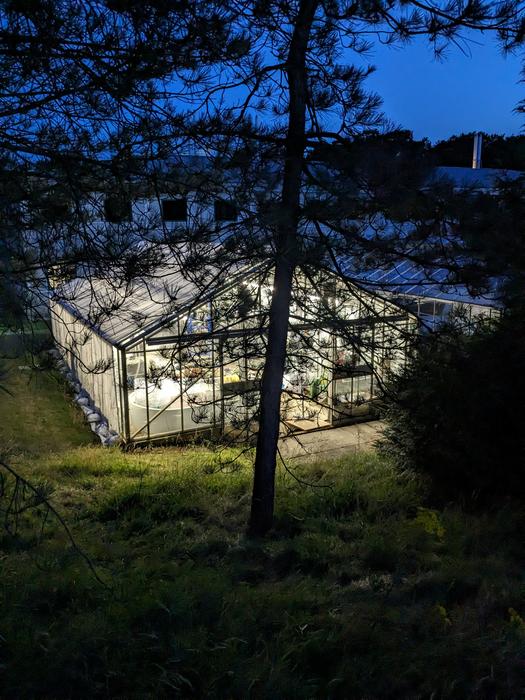A company co-founded by a University of Bath graduate has opened the UK’s first pilot plant that can recycle up to 60% of plastic lab waste, to make back into new lab consumables. LabCycle hopes the technology could be scaled up in the future to recycle waste from healthcare, research and commercial labs that is currently incinerated or sent to landfill.

Credit: LabCycle
A company co-founded by a University of Bath graduate has opened the UK’s first pilot plant that can recycle up to 60% of plastic lab waste, to make back into new lab consumables. LabCycle hopes the technology could be scaled up in the future to recycle waste from healthcare, research and commercial labs that is currently incinerated or sent to landfill.
To avoid cross-contamination between experiments, most lab-based scientists use a significant amount of single-use plastic in their daily research, including pipette tips, test tubes, petri dishes and multi-well plates. Currently, less than 1% of this waste is being recycled.
LabCycle, a start-up company co-founded by former University of Bath PhD student Dr Helen Liang, aims to recycle up to 60% of this waste, turning it into high grade plastic pellets which can be used to make new tubes and petri dishes.
After decontamination, the plastic is turned into high grade pellets the size of rice grains, which are sent to LabCycle’s manufacturing partner to turn into new lab equipment.
Their unique recycling process doesn’t require waste to be autoclaved (sterilised) beforehand meaning that less heat energy is needed. Water usage is also minimised through recycling, further reducing the environmental impact.
Their recent collaboration with the University of Bath’s Innovation Centre for Applied Sustainable Technologies (iCAST) has tested the properties of recycled polystyrene (PS), polypropylene (PP) and polyethylene terephthalate (PET) and shown that the polymers are suitable to go full circle and be used to make new lab consumables.
Dr Liang said: “Adopting a circular economy approach involves optimising laboratory practices to minimise waste generation and resource consumption.
“Research and healthcare workers can focus on reducing and reusing single-use plastic items when possible.
“Additionally, proper waste segregation should be emphasised to enable recycling. Encouragingly, more than 90% of our survey participants from the research and healthcare sectors have indicated strong motivation on single-use plastic waste recycling.”
Dr Liang, who obtained a PhD in Sustainable & Circular Technologies from the University of Bath in 2022, met her fellow co-founders and came up with the idea for the company at a SETsquared workshop in 2019.
Since then, LabCycle has secured funds of around £430k to develop the technology and start the commercialisation process.
Following a successful pilot project recycling single-use plastic waste from three labs at the University of Bath in 2022, the team is working to roll out the service commercially.
With support from the Faculty of Science, iCAST and Campus Infrastructure team at the University of Bath, LabCycle has set up a pilot recycling plant in a converted greenhouse on campus and plans to implement waste recycling for its science and engineering labs.
They are also working with the local NHS Blood and Transplant to recycle waste from their laboratories.
Dr Liang said: “We’re very excited to open our new pilot facility and realise our vision of creating a circular economy for plastic consumables in the research and healthcare sectors. We are sincerely grateful for the support from the University of Bath.”
Dr Fabienne Pradaux-Caggiano, Technical Supervisor in the University’s Department of Chemistry said: “The idea that we are now able to recycle the single use plastic from our research labs onsite is really exciting and will be our small but significant way to have an impact on climate change without compromising our research.
“Dr Liang has been a delight to work with and we fully supported her in her endeavour from the very start. She has proven her concept is strong and very valuable for the environment.
“I can’t wait to see Labcycle expand and thrive both within the University and on a wider scale!”
Alice Lowe, Climate Action Engagement & Training Manager at the University of Bath said: “At Bath, through our [Climate Action Framework] (https://www.bath.ac.uk/corporate-information/university-of-bath-climate-action-framework-principles/), we’re committed to tackling the climate emergency across all aspects of University life, including through education, research, footprint and partnerships.
“Reducing the impact of how we conduct our research is a challenging area that we’re working on, and so we’re delighted to be partnering with LabCycle in this ground-breaking project to meaningfully tackle one aspect of that.”




